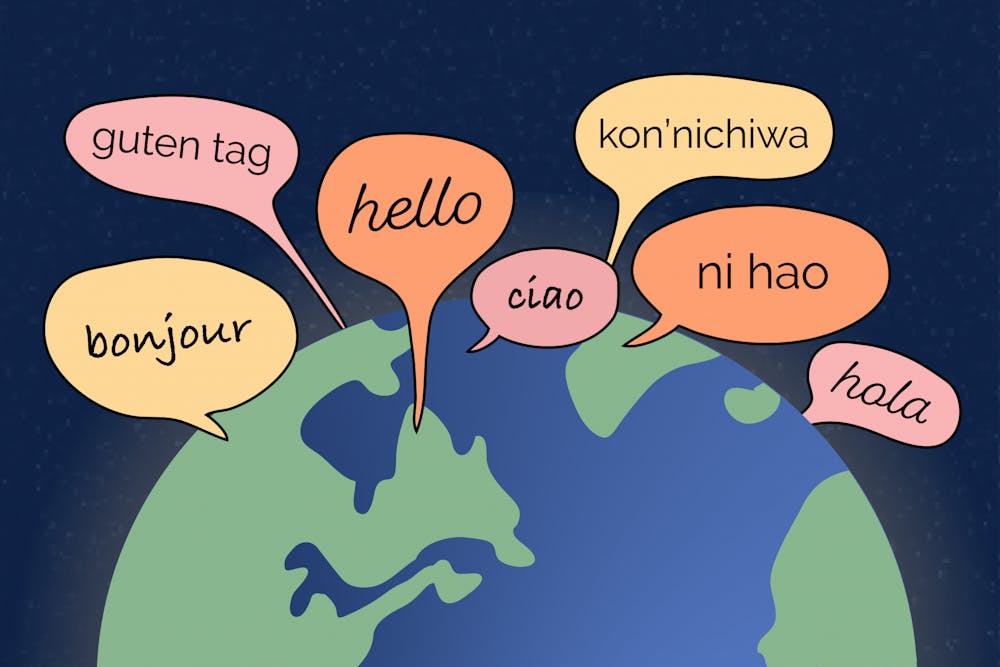Editor's note: The interview with María Hernandez was conducted in Spanish and translated into English by the author.
Acknowledging the differences in languages and in types of communication that vary because of cultural and historical backgrounds will help us to effectively connect with people from different parts of the world.
In India there are more than 19,500 languages as mother tongues; in Japan, silence can have four different meanings during a conversation; and in Colombia, Spanish has 11 different dialects.
Many words can get lost in translation when we talk with someone that speaks a different language. Putting effort in discovering the meaning of what the other is trying to say will allow us to recognize and appreciate the core of human relationships.
By constantly reminding ourselves of the power of words in shaping relationships, we will be more conscious of what we say, and this will facilitate the recognition of emotions in others as well.
In the Spanish language, there is a word between "I like you" and "I love you," that is, "Te quiero." The literal translation would be "I want you," but it comes with a caring feeling around it.
This simple phrase gives an additional opportunity to express our emotions in a more precise way, which is necessary to maintain healthier relationships based on honesty.
Paradoxically, relationships exist in the universal language of emotions. We can all relate to feelings of love, anger or sadness, even if the phrases through which we express them vary among cultures.
Understanding every aspect of communication becomes a necessity in a globalized world. As the well-known idiom says: "When in Rome, do as the Romans do."
María Hernandez, a Mexican woman who has lived in Columbia for 23 years, said language has not been an impediment in adapting to her life as she prepared for it. “[My brother] made me write 100 times each word to be able to understand English.”
Recognizing each other through the lens of language is critical for different aspects such as business, negotiations and personal relationships, as it is the only way to avoid misinterpretations in communication.
We cannot forget the importance of continuing to learn other people's dialects, as this acknowledgment of differences gives us access to opportunities, and it makes us feel included.
To accomplish effective communication between different cultures, there has to be a willingness to learn and to encourage others to do so as well.
"Your friends are going to help you if they don’t understand you," said Siwadol Dejphumee, a Ph.D. student at USC, who has been in Columbia for four years. "They will tell you how to pronounce the word."
In the United States, there are several speech varieties from differing communities that we might not know about.
Tracey Weldon, professor and associate dean for diversity, interdisciplinary programs and social sciences at USC, wrote “Middle-Class African American English,” in which she reflects on the complex social, economic, and professional domains that shape the middle class Black vernacular English and linguistic behavior.
“A lot of students, even today, are placed in special classes and treated with language deficiencies, when in fact there is no language deficit, they are simply speaking a different variety," Weldon said.
Code-switching is the practice of alternating between two or more languages or varieties of language in conversation when faced with different environments.
This definition helps us recognize the complexity of language and reminds us a language does not contain a "bad" or "good" connotation.
What is wrong is not about language, but about hateful intentions that can exist behind words.
“The words itself are irrelevant," Weldon said. "It’s when they are made meaningful in context that we understand the power that they have."
Intentionally hurtful words just pass directly through our ears and fester in our hearts, no matter what language in which they are said.
Awareness of what we say and how we understand verbal communication based on our language and cultural heritage will help us listen to each other in order to build healthy and strong relationships.
Our communication skills will shape the relationships we have and influence the way we see the world. We must intend to learn other dialects so we can tell inclusive global stories in a universal language.

